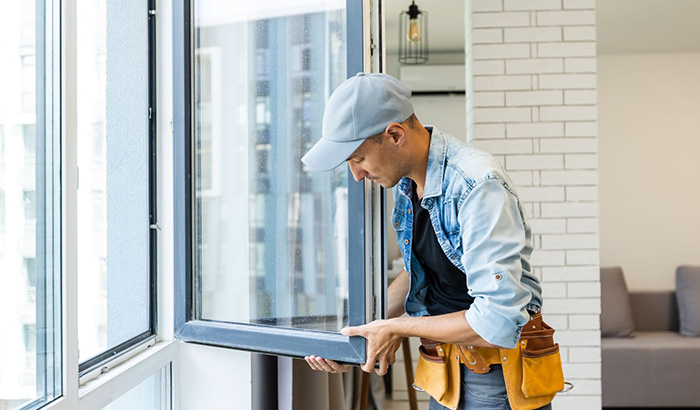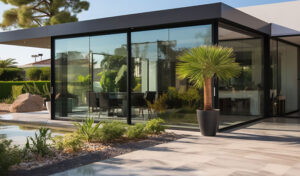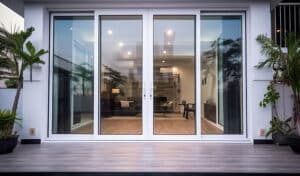In an era where sustainability is a necessity, every element of our homes is under the spotlight for its environmental impact. Among these, the role of glass in our windows and doors is pivotal, transcending mere aesthetics to embrace energy efficiency.
This blog delves into how this innovative glass illuminates our spaces with natural light and serves as a guardian of our planet’s health and our home’s energy consumption.
We’ll unravel the layers of energy-efficient glass, showcasing its significance in constructing sustainable, cost-effective, and comfortable living environments. Join us as we peer through the lens of eco-friendly living, exploring how energy-efficient glass is a clear choice for the environmentally conscious homeowner.
The basics of energy-efficient glass
Energy-efficient glass has become a popular feature in many modern homes. But what is it exactly, and how does it help save energy? Let’s dive into the basics of energy-efficient glass and discover why it plays a crucial role in keeping our homes comfortable and environmentally friendly.
Firstly, let’s understand what energy-efficient glass is. It is a type of glass that has special coatings or thermal features which help reduce heat transfer. These coatings reflect away external heat during summers and prevent internal heat from escaping during winters.
By minimizing heat gain or loss, energy-efficient glass reduces the need for heating or cooling systems in our homes, ultimately leading to significant energy savings.
Another advantage of energy-efficient glass is its ability to reduce condensation. Condensation occurs when warm, moist indoor air comes into contact with a cold surface, such as a regular glass window. This moisture can lead to mold growth and other issues.
Energy-efficient glass is designed to keep the interior surface closer to room temperature, reducing the likelihood of condensation. Maintaining a drier environment can protect our homes from potential damage and maintain healthier living conditions.
Not only does energy-efficient glass benefit our homes, but it also contributes to a greener planet. We can lower our carbon footprint by reducing the need for excessive heating or cooling systems. Less energy consumption means fewer greenhouse gas emissions, which helps combat climate change.
Additionally, energy-efficient glass has the potential to make homes more sustainable overall. When paired with other energy-saving measures like proper insulation and energy-efficient appliances, we can significantly reduce our overall energy consumption and environmental impact.
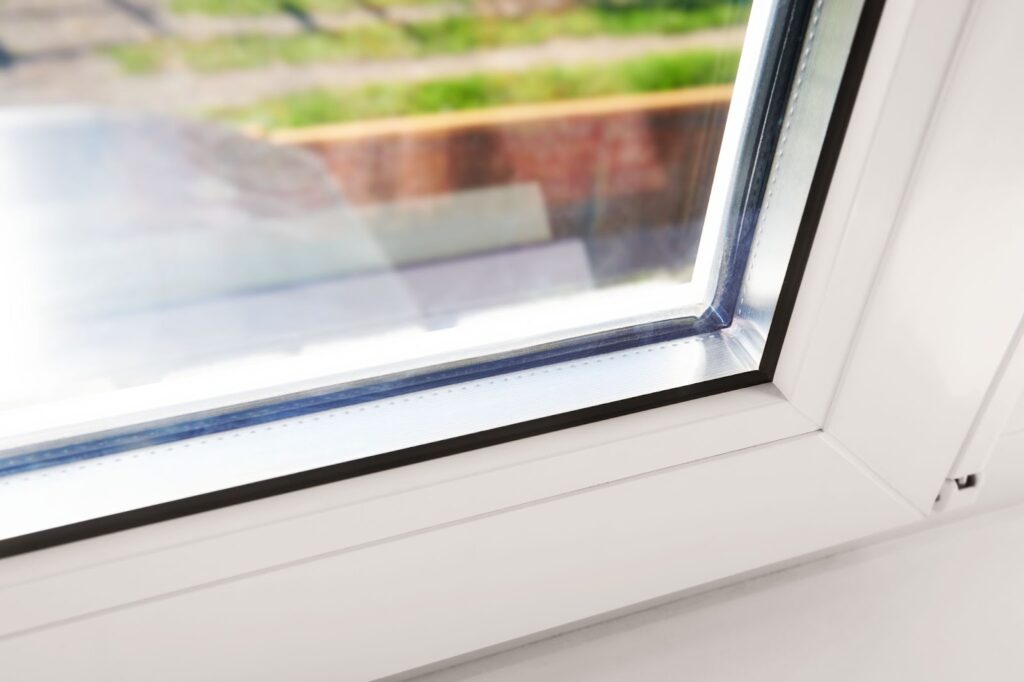
Benefits of energy-efficient glass in homes
1. Significant energy savings
One major advantage of energy-efficient glass is its ability to conserve energy and reduce utility bills. With its advanced technology, this glass minimizes heat transfer, keeping the indoor temperature stable. Consequently, homeowners can rely less on heating and cooling systems, resulting in substantial energy savings.
2. Increased comfort and natural lighting
Energy-efficient glass is engineered to provide unparalleled comfort. Using insulating materials prevents drafts and eliminates chilly spots near windows. The improved insulation also helps maintain a consistent indoor temperature, saving energy and keeping you comfortable no matter the weather outside.
Additionally, energy-efficient glass allows ample natural light to flood your living spaces, reducing the need for artificial lighting during the day. Not only does this enhance the ambiance of your home, but it also contributes to the overall well-being of its occupants.
3. Protection against fading
Standard windows allow harmful ultraviolet (UV) rays to penetrate your home, causing the fading of furniture, upholstery, and even photographs over time. Energy-efficient glass incorporates a protective coating that filters out the majority of the harmful UV rays, ensuring your precious belongings remain vibrant for years to come.
This added protection extends the lifespan of your cherished possessions and reduces the need for expensive replacements.
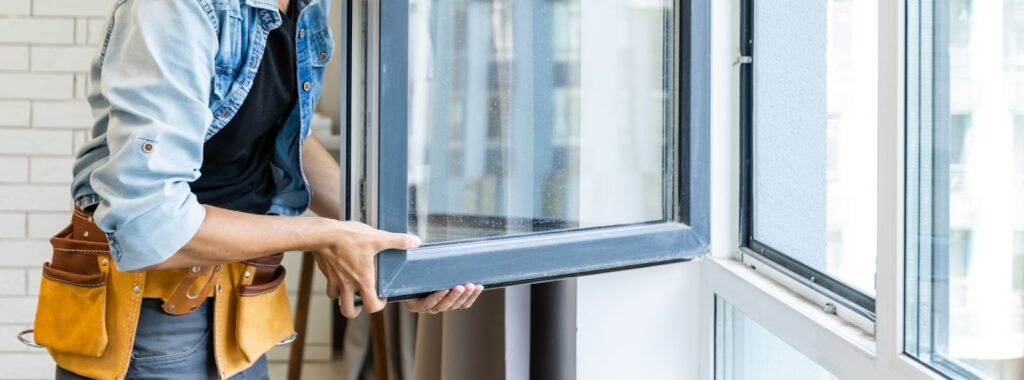
Considerations when choosing energy-efficient glass
When choosing energy-efficient glass for your home, there are several important considerations to keep in mind. Energy-efficient glass is designed to help minimize heat transfer, which can significantly impact your home’s energy consumption and comfort level. By choosing the right type of glass, you’ll make a positive difference for the environment and your wallet.
One of the first factors to consider is the climate where you live. Different types of energy-efficient glass are designed to meet the specific needs of various climate zones.
For example, if you live in a hot and sunny climate, you may want to consider glass that has a low solar heat gain coefficient (SHGC) value. This means it allows less sun heat to enter your home, keeping it cooler during those scorching summer months.
On the other hand, if you live in a colder climate, you may want to choose glass with a higher SHGC value to allow more solar heat to enter and help warm up your home.
Another important consideration is the type of window frame. The energy performance of your windows is not solely dependent on the glass itself but also on the frame that holds the glass in place.
Look for frames that have good insulation properties and minimize heat loss or gain. Materials such as vinyl, fiberglass, or wood are popular choices for energy-efficient window frames due to their thermal properties. Avoid metal frames, as they conduct heat and compromise the overall energy efficiency of your windows.
A reliable indicator of the energy efficiency of glass is its U-value. The U-value measures the rate at which heat flows through a material. Lower U-values indicate better insulation, meaning less heat loss from your home during cold weather and less heat gain during warm weather. Aim for windows with a low U-value to ensure optimal energy efficiency.
Additionally, the number of glass panes and the space between them are important factors to consider. Double-pane or even triple-pane windows are more energy-efficient than single-pane windows. The air or gas-filled space between the panes acts as an extra barrier against heat transfer. This extra layer of insulation helps to keep your home more comfortable and prevents valuable energy from escaping through your windows.
Choosing energy-efficient glass may also offer additional benefits such as noise reduction. If you live in a noisy neighborhood or near a busy street, opting for laminated or double-pane glass can help minimize outdoor noise infiltration, creating a more peaceful indoor environment.
Lastly, don’t forget to consider the cost of energy-efficient glass. Although it may have a higher initial price compared to standard glass, the long-term savings on your energy bills often make it a worthwhile investment. Additionally, many government programs offer incentives and tax credits for installing energy-efficient products in your home, which can help offset the initial cost.
Installing and maintaining energy-efficient glass
The first step to installing and maintaining energy-efficient glass is to consult with a professional to evaluate your home’s specific needs. They will assess factors such as climate, orientation, and existing windows to recommend the most appropriate energy-efficient glass for your home. This ensures you receive customized solutions that address your comfort and energy-saving goals.
Once you have chosen the right energy-efficient glass for your home, it’s time for installation. Proper installation will help you maximize the benefits of energy-efficient glass.
We highly recommend hiring experienced professionals for this task. They have the expertise to ensure a seamless installation, avoiding any gaps or air leaks that could compromise the performance of the glass. A well-installed energy-efficient glass will provide the desired insulation, noise reduction, and energy savings.
Maintenance is also essential to ensuring the longevity and effectiveness of energy-efficient glass. Cleaning them regularly keeps them looking shiny and appealing and allows maximum light to enter your home.
It is important to use mild soapy water and a soft cloth or sponge to avoid scratching the glass. Gentle wiping in a circular motion will help you effectively remove any dust or dirt particles. Avoid using harsh chemicals, abrasive materials, or high-pressure sprays, as they can damage the special coatings.
Additionally, inspect the window frames and weatherstripping regularly to ensure they are in good condition and provide a tight seal.
Contact Murray Glass today
Are you passionate about making eco-friendly choices that contribute to a sustainable future? Do you want your home to reflect this commitment by incorporating energy-efficient solutions?
Look no further than Murray Glass for all your eco-friendly glass needs. With our extensive range of energy-efficient glass options, we are dedicated to helping you reduce your carbon footprint while enhancing the comfort and aesthetics of your living space.
Whether renovating your home or embarking on a new construction project, Murray Glass has the expertise and products to bring your vision to life. Our team is here to guide you through the selection process, ensuring that your home benefits from the highest quality, eco-friendly glass solutions available.
Make a choice that benefits both your home and the environment. Reach out to Murray Glass today and take a significant step towards a more sustainable, energy-efficient future. Let’s work together to create spaces that are beautiful and kind to our planet.

